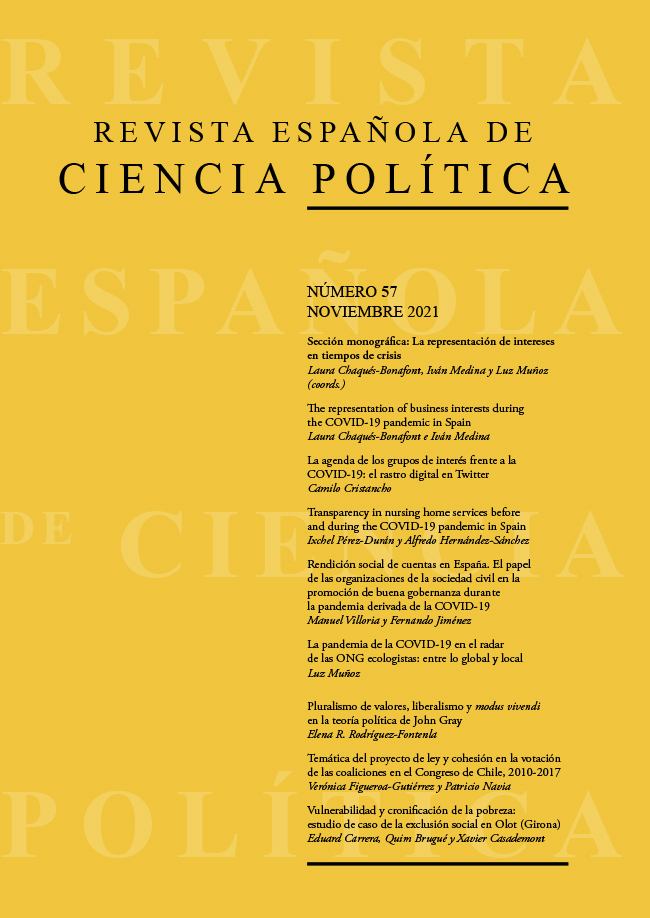COVID-19 pandemic on the radar of environmental NGOs: Between the global and the local
DOI:
https://doi.org/10.21308/recp.57.05Keywords:
NGO, COVID-19, pandemic, environment, climate change, thematic text analysis, framingAbstract
The COVID-19 pandemic has been a major focus of attention for political actors since its emergence in the media in December 2020, making headlines for several weeks. What has this meant for environmental NGOs that are also concerned with another global crisis such as the climate change? How has it affected the way they frame and interpret the issues they advocate? As key actors in the process of defining and creating meanings around public issues, this article investigates the extent to which the pandemic has provided an opportunity for environmental NGOs to disseminate and frame issues such as climate change. In order to answer these questions, a thematic analysis was carried out of the news published by the five NGOs in the sector with the largest size and institutional presence in Spain, between January and December 2020. It is found that emphasis has been placed on topics where similarities exist between the climate crisis and the COVID-19 crisis in terms of their global and local dimensions. On the other hand, important differences can be observed when analyzing the content of the individual news items of each NGO, which are partly related to their own organizational identity.
Downloads
Downloads
- pdf (Español (España))
- html (Español (España))
- xml (Español (España))
- Figura 1 (Español (España))
- Figura 2 (Español (España))
- Figura 3 (Español (España))
- Figura 4 (Español (España))
- Figura 5 (Español (España))
- Figura 6 (Español (España))
- Figura 7 (Español (España))
- Figura 8 (Español (España))
- Figura 9 (Español (España))
- Figura 10 (Español (España))
- Figura 11 (Español (España))
- Tabla A1 (Español (España))
- Tabla A2 (Español (España))
Published
How to Cite
Issue
Section
License
Copyright (c) 2021 Luz Muñoz

This work is licensed under a Creative Commons Attribution-NonCommercial-NoDerivatives 4.0 International License.






